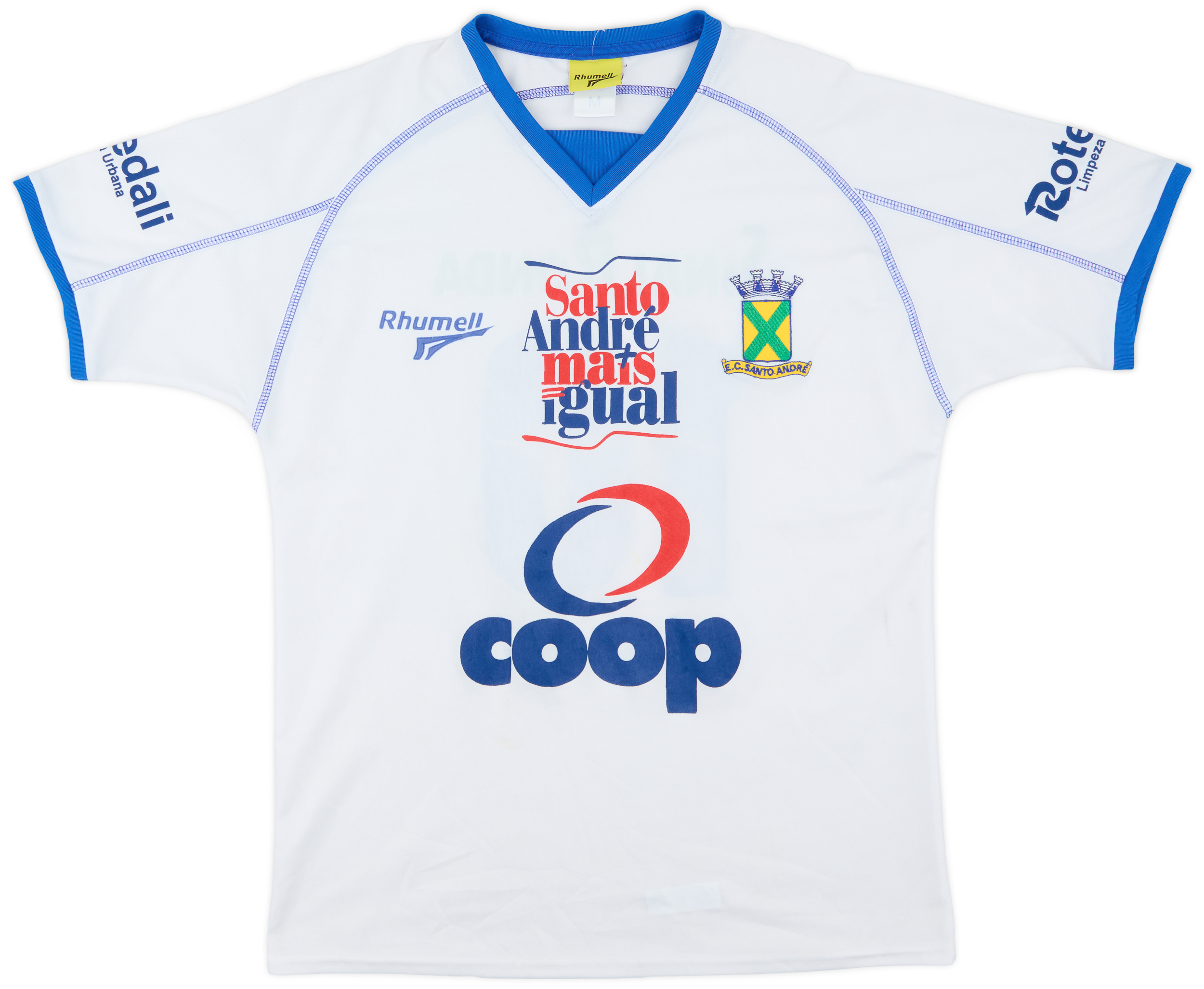EC Santo Andre
Introduction Esporte Clube Santo André, commonly referred to as EC Santo André, is a Brazilian football club based in Santo André, São Paulo. Founded on April 5, 1967, the club has a rich history and a passionate fanbase that contributes to its vibrant identity within Brazilian football. Known for its distinctive blue and white colors, […]
2003 EC Santo Andre Home Shirt #10 - 8/10 - (M)
58.99£ - ca: €70
2006-07 EC Santo Andre Home Shirt #9 - 7/10 - (L)
47.99£ - ca: €57
Introduction
Esporte Clube Santo André, commonly referred to as EC Santo André, is a Brazilian football club based in Santo André, São Paulo. Founded on April 5, 1967, the club has a rich history and a passionate fanbase that contributes to its vibrant identity within Brazilian football. Known for its distinctive blue and white colors, EC Santo André has positioned itself as a prominent figure in the regional and national football landscape, striving for excellence on and off the field.
Club History
EC Santo André was established in the late 1960s, a period marked by significant transformations in Brazilian football. The founders aimed to create a team that would not only compete at high levels but also connect with local supporters. The club initially participated in state competitions, gradually making its way to higher divisions. A significant moment in the club’s history came in the 1990s when it achieved promotion to the Campeonato Brasileiro Série B, marking the beginning of its rise in professional football.
In 2004, EC Santo André achieved a historic milestone by securing its first major title, winning the Copa do Brasil. This victory was instrumental in the club’s ascent, providing them the opportunity to compete in the prestigious Copa Libertadores, South America’s premier club tournament. This achievement, alongside a strong youth academy, helped solidify the club’s identity and its commitment to developing talented players.
Achievements
Throughout its history, EC Santo André has enjoyed several notable achievements at both domestic and international levels. The club’s crowning glory came in 2004 when they triumphed in the Copa do Brasil after a thrilling final against Vasco da Gama. This win not only represented a significant achievement for the club but also served as a stepping stone for future endeavors, allowing them to compete in the prestigious Copa Libertadores in 2005.
In addition to the Copa do Brasil title, EC Santo André has also found success in other competitions, including multiple Campeonato Paulista titles in lower divisions. Their journey through various tiers of Brazilian football has showcased the club’s resilience and determination to rise through the ranks.
Significant Players and Matches
Over the years, EC Santo André has been home to a variety of significant players who have left their mark on the club’s history. Notable figures include legends like Ricardo Sá Pinto and Luis Fabiano, who both played pivotal roles during their tenures. Ricardo Sá Pinto, a Portuguese forward, became a fan favorite for his skill and dedication on the field, while striker Luis Fabiano gained recognition as one of Brazil’s most talented forwards during his time at the club.
One landmark match that stands out is the Copa do Brasil final against Vasco da Gama, held in 2004. The two-legged final captured the spirit of Brazilian football, with EC Santo André showcasing determination and skill. The second leg at the legendary Maracanã Stadium sealed their victory and is often recalled by fans as one of the club’s proudest moments.
Cultural Impact
EC Santo André has significantly influenced local culture, becoming a source of pride for residents of Santo André. The club’s success has fostered a close-knit community of supporters who passionately follow their team throughout the year. Matches at the Estádio Bruno José Daniel are full of fervor, with fans uniting in their love for the club. Through various programs, the club engages with the community, promoting sportsmanship and teamwork among the youth in the region.
In addition to its sporting achievements, EC Santo André has made contributions to regional culture, including community outreach initiatives and support for local events. These efforts have helped to create a positive impact, further solidifying the club’s status not just as a football team but as an integral part of the community.
Conclusion
In summary, EC Santo André has established itself as a noteworthy entity in Brazilian football, characterized by its storied history, significant achievements, and cultural impact. The club’s journey from its founding to becoming a champion reflects the resilience and passion of its players and supporters alike. As EC Santo André continues to develop and contribute to the sport, it remains a proud symbol of football heritage in Brazil, echoing its name through the annals of football history.

